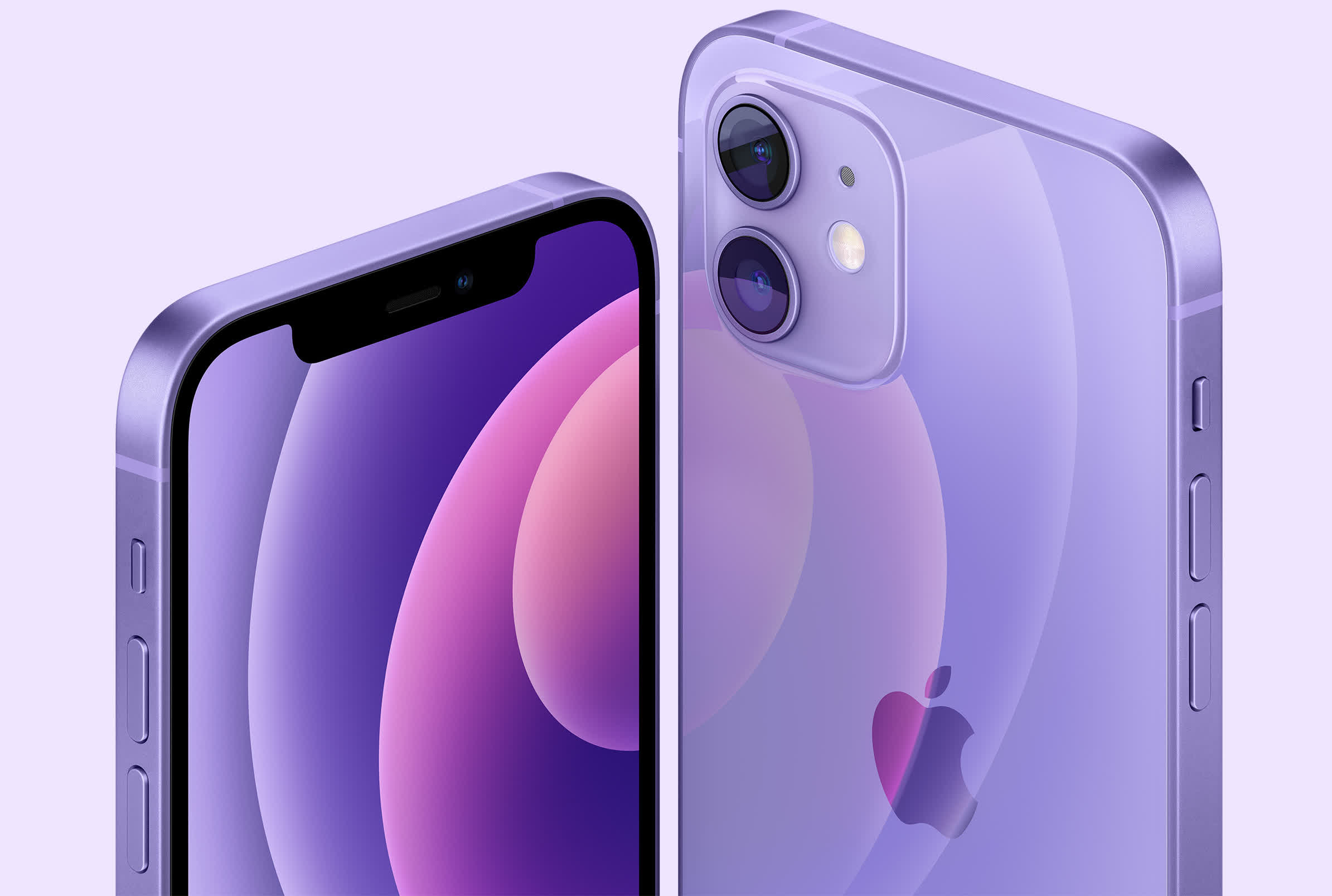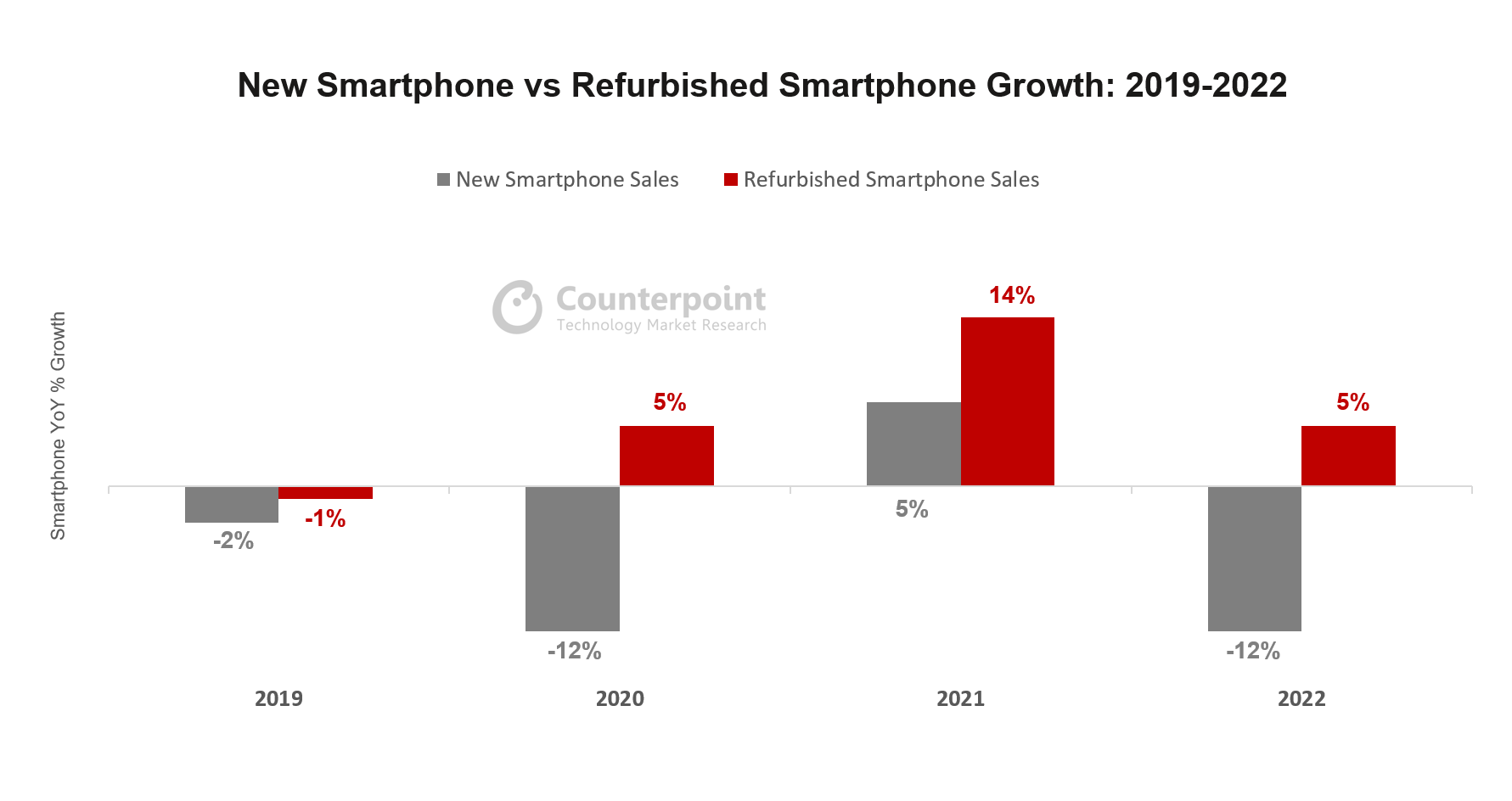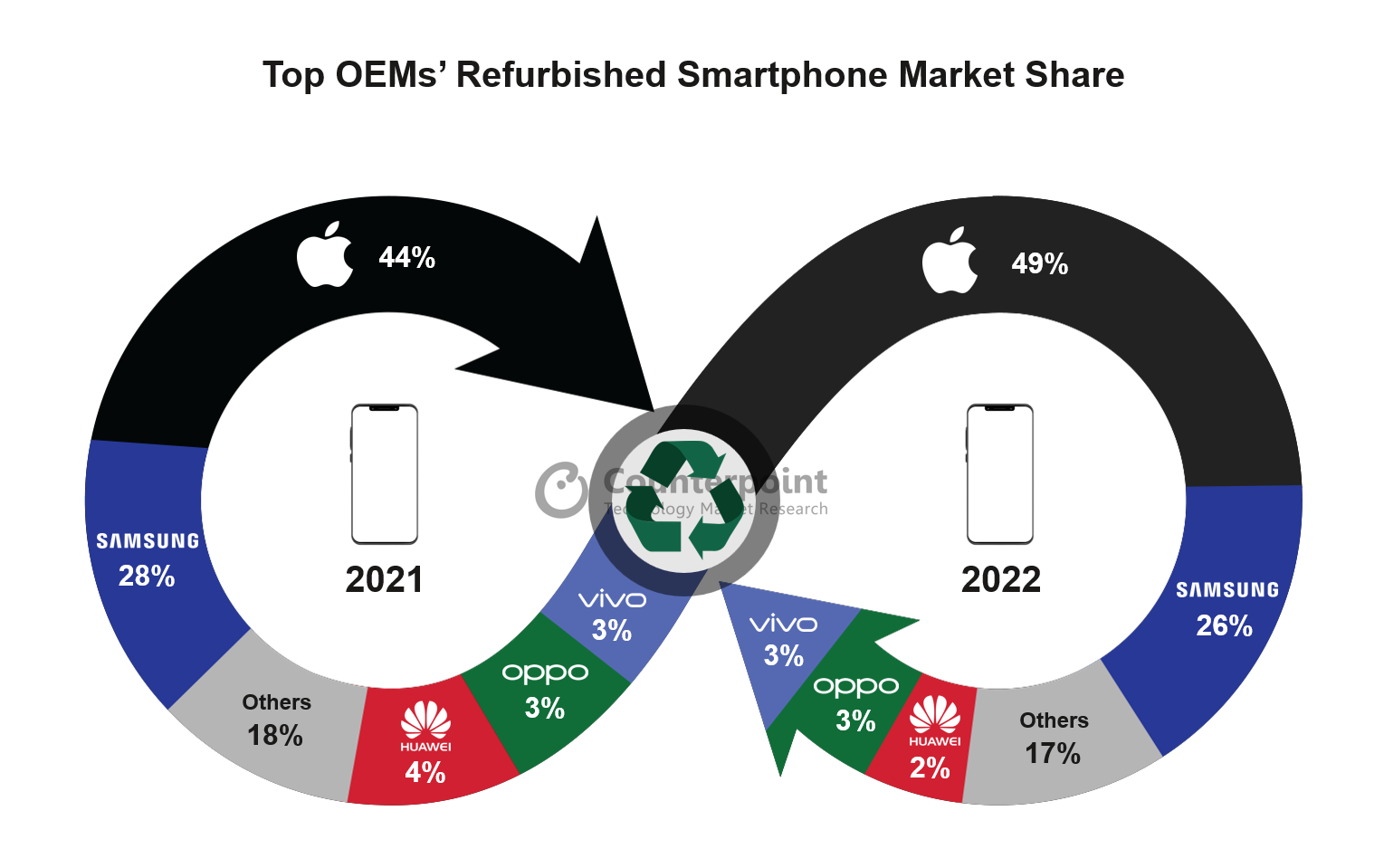In a nutshell: Although Samsung recently moved ahead of Apple when it comes to global smartphone shipments, one area where Cupertino dominates is the refurbished phones market. About half of the refurbed handsets sold globally last year were iPhones, marking a 16% year-on-year increase.
According to Counterpoint Research's data, the global economic crisis saw demand for cheaper, refurbished smartphones grow 5% last year, with India (+19%) and Latin America (+18%) leading the way. While refurbed phone sales increased in 2022, shipments of new devices fell -11.3%.
The global figure for refurb sales would have been even higher were it not for the -17% decline in sales in China due to increasing Covid-19 cases and the country's extreme Covid-Zero policies that impacted businesses and demand.
Samsung might have edged past Apple when it comes to global smartphone shipments, but iPhones were dominant in the refurbished market last year. Their global volumes increased 16% YoY, taking Apple's market share to 49%. Samsung, meanwhile, saw its share decrease from 28% to 26%. As such, there was a slight shift of Android consumers to iOS in 2022, a trend Counterpoint believes will continue.
The increased demand for refurbished iPhones is affecting sales of new handsets and Apple's service revenue in many markets. But the popularity of refurbed iPhones means people are buying them even in places where new variants are hard to find.
Most consumers buying refurbished smartphones opted for flagship or premium models, pushing up average selling prices for the secondary market.
It's interesting to see that the move to 5G is also being felt in the refurbished market, with 5G-capable handsets making up 13% of global refurb sales last year.
Apple sells refurbished iPhones via its online store for a few hundred dollars less than their regular price. The company offers the same one-year warranty that comes with brand-new phones, all manuals and accessories, a new battery, a new outer shell, and, if required, newly replaced parts. Samsung also sells refurbs online.
An element that still puts people off buying refurbished phones is the fear that they could have an undiagnosed fault, but trust levels are increasing. With new models becoming more expensive, trade-in levels higher than ever, and people wary of making large purchases in the current economic climate, the refurb market is expected to keep growing. The one thing slowing the trend down is the fact that people tend to hold onto their new phones for longer, not wanting to spend another $1,000+ on the latest upgrade.


